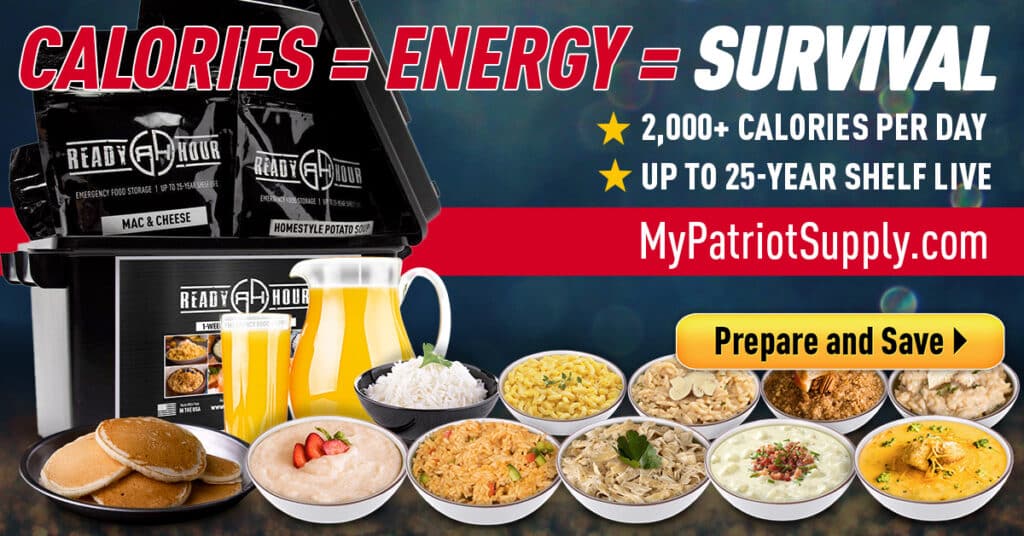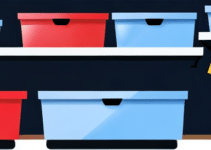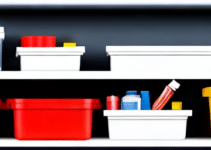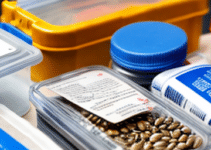Keep medications properly stored: It's crucial to store your medications properly in your emergency kit to maintain their effectiveness. Keep them in a cool, dry place, away from direct sunlight, and make sure they are in their original packaging with the proper labels.
Consider additional essential medications: In addition to your regular prescriptions, there are other essential medications that you should consider including in your emergency kit.
These may include over-the-counter pain relievers, fever reducers, antihistamines, and any other medications you regularly rely on for your health. Label medications clearly: To ensure that you can easily identify your medications in an emergency, label them accordingly and keep them in your emergency kit.
Click here to learn more about: patriot
Why have an emergency kit
Having an emergency kit that includes emergency tools, emergency food, emergency water, and emergency medical supplies is essential for preparedness in times of unexpected emergencies. It provides a sense of security and peace of mind because you have taken proactive measures to protect yourself and your loved ones.
An emergency kit ensures self-sufficiency by reducing reliance on external assistance.
This is especially important when basic necessities like food, water, and medical supplies may be limited.
It also serves as a valuable asset during evacuations, allowing you to quickly gather and carry essential items for survival.
One crucial aspect of an emergency kit is including recommended prescriptions or essential medications.
This ensures access to crucial healthcare during crises. Emergency tools, items, food, water, shelter, medicine, medical supplies, communication, and lighting are essential for preparedness in emergency situations.
Essential items for your kit
When it comes to assembling your emergency kit, there are several essential items that should not be overlooked, such as an emergency radio and an emergency blanket. One crucial item to include is emergency power, whether in the form of a portable generator or extra batteries for your electronic devices.
An emergency radio is another important item that can provide you with crucial information during an emergency.
An emergency whistle can be a lifesaver, allowing you to signal for help if you find yourself in a dire situation.
It's also important to have an emergency blanket, tent, rope, backpack, gloves, and mask on hand to ensure your safety and comfort during unexpected situations
Emergency Preparedness
- Emergency power is essential for staying connected during a crisis. A portable generator or extra batteries for electronic devices can provide crucial power when regular sources are unavailable.
- An emergency radio is a valuable tool for receiving important information and updates during emergencies. It can help you stay informed about evacuation notices, weather conditions, and other critical details.
- An emergency whistle is a simple yet effective device for signaling for help in dire situations. It can be heard from a distance and can attract attention, increasing your chances of being rescued.
- Having an emergency blanket, tent, rope, backpack, gloves, and mask on hand ensures your safety and comfort during unexpected situations. These items can provide shelter, warmth, and protection from hazardous elements.
How often update your kit
Up-to-date contact information will ensure that you can quickly reach out for help in the case of an emergency, whether it be a situation where emergency flares, a generator, or even a compass might come in handy. Remember, preparedness is key, and taking the time to update your emergency kit can make all the difference in keeping yourself and your loved ones safe during a crisis
Medications in your kit
During an emergency evacuation, having the right medications in your kit can be a lifesaver. Whether it's a minor injury or a chronic health condition, being prepared can make all the difference.
In addition to common over-the-counter medications like pain relievers and antihistamines, it is essential to include any prescription medications that you or your family members rely on.
It is important to regularly check expiration dates and rotate medications to ensure their potency.
Individuals with chronic health conditions should prioritize including their recommended prescriptions and a list of current medications, dosages, and allergies. Alongside medications, don't forget to include basic first aid supplies like bandages, antiseptic solution, and adhesive tape. And for special considerations, remember to include any necessary medications or supplies for infants in case of emergencies, such as emergency first aid or emergency evacuation.
Food and water for your kit
When it comes to preparing an emergency kit, one of the most critical components to consider is the provision of food and water, as outlined in the emergency preparedness checklist. These essentials are vital for sustaining oneself during unexpected situations and ensuring optimal health and energy levels.
To guarantee long-lasting supplies, it is wise to select non-perishable items with extended shelf lives, such as canned goods, dehydrated meals, and energy bars.
It is crucial to provide a variety of food options to cater to different dietary needs and preferences.
In addition to food, water storage should also be prioritized. It is recommended to have at least one gallon of water per person per day to cover drinking and sanitation requirements. It is important to have an emergency preparedness plan in place, including following the appropriate emergency protocols and procedures, as well as receiving proper emergency training to ensure an effective emergency response.
Tools and supplies in your kit
One essential aspect of your emergency preparedness supplies is having a reliable set of tools. These tools can be very useful during unexpected situations, as they allow you to make necessary repairs or adjustments.
It is important to have a multi-tool, screwdrivers, pliers, and a utility knife in your emergency kit.
These tools are necessary for handling minor repairs and adjustments that may arise during emergencies.
In addition to these tools, it is recommended to include a flashlight, extra batteries, a whistle, and a portable radio in your emergency preparedness bag. These emergency preparedness supplies are crucial for anyone looking to be ready for any situation.
Emergency Preparedness Supplies
- A reliable set of tools in your emergency kit can help you make necessary repairs or adjustments during unexpected situations.
- Having a multi-tool, screwdrivers, pliers, and a utility knife in your emergency kit is essential for handling minor repairs and adjustments that may arise during emergencies.
- In addition to tools, including a flashlight, extra batteries, a whistle, and a portable radio in your emergency preparedness bag can further enhance your preparedness.
- These emergency preparedness supplies are crucial for anyone looking to be ready for any situation.
Properly store your kit
Properly storing your emergency kit is crucial for ensuring that it remains effective and ready for use when you need it most, which is why staying connected to an emergency preparedness community provides valuable advice, information, and support. It is important to find a suitable storage location and take additional steps to protect your supplies and essentials.
Consider using airtight containers or waterproof bags to shield your kit from moisture, dust, and pests.
Labeling your containers will make it easier to locate specific items during an emergency.
When storing medications, follow proper guidelines and keep them in their original packaging with clear labels. Regularly check expiration dates and update your kit as needed to maintain its relevance and usefulness over time.
By taking these simple steps, you can ensure that your kit is always prepared to support you in unforeseen circumstances. Remember, emergency preparedness education is key to keeping yourself and others safe in times of crisis.
Special considerations for pets
Here is the updated article section: Medications for pets are necessary for the general health and well-being of pets, making them an essential component of emergency preparedness for pet owners. These medications can include flea and tick preventatives, heartworm preventatives, and vitamins or supplements.
It is important to follow the recommended dosage and schedule for these essential medications to ensure their effectiveness.
When it comes to storing medications for pets, it is crucial to keep them in a safe and secure location.
Ensure that they are out of reach of children and other pets to prevent accidental ingestion. It is also important to regularly check the expiration dates of medications and dispose of any that are expired or no longer needed. In addition to emergency kits and medications, pet owners should also be mindful of their pet's dietary needs when planning for emergency preparedness.
Pet Medications and Emergency Preparedness
- Pet medications are necessary for maintaining the general health and well-being of pets.
- Following the recommended dosage and schedule for pet medications is crucial for their effectiveness.
- Storing pet medications in a safe and secure location helps prevent accidental ingestion.
- Regularly checking the expiration dates of medications and disposing of expired or unnecessary ones is important.
Prescriptions for your kit
When it comes to emergency preparedness tools, including necessary prescriptions and essential medications in your emergency kit is crucial for your safety and well-being. These medications are vital for managing your daily health or treating specific conditions.
Being able to access these medications, even in situations where reaching a pharmacy or healthcare provider may be difficult, ensures that you can continue to take care of your health.
It is important to have enough of each medication to last for a few days or weeks, depending on the duration of the emergency
Create a personalized kit
When it comes to creating a personalized emergency kit, it is important to consider the unique needs and requirements of the individual for whom the kit is intended, including any necessary emergency prescription medications. This includes taking into account any necessary emergency medical care or treatment that may be required.
For example, individuals with chronic conditions such as diabetes should include glucose monitoring supplies and insulin in their kit.
It is essential to think about the purpose of the kit, whether it is for travel, emergencies, or specific activities.
By carefully selecting the necessary items and ensuring the kit is compact and portable, you can effectively address the individual's needs in various situations. It is crucial to keep the kit regularly updated and in good condition for emergency preparedness
Creating a Personalized Emergency Kit
- Include necessary emergency prescription medications
- Consider any required emergency medical care or treatment
- Individuals with chronic conditions like diabetes should include glucose monitoring supplies and insulin
- Think about the purpose of the kit, whether it is for travel, emergencies, or specific activities
Essential Survival Kit Checklist Prescription Included
Essential Disaster Kit Meds





